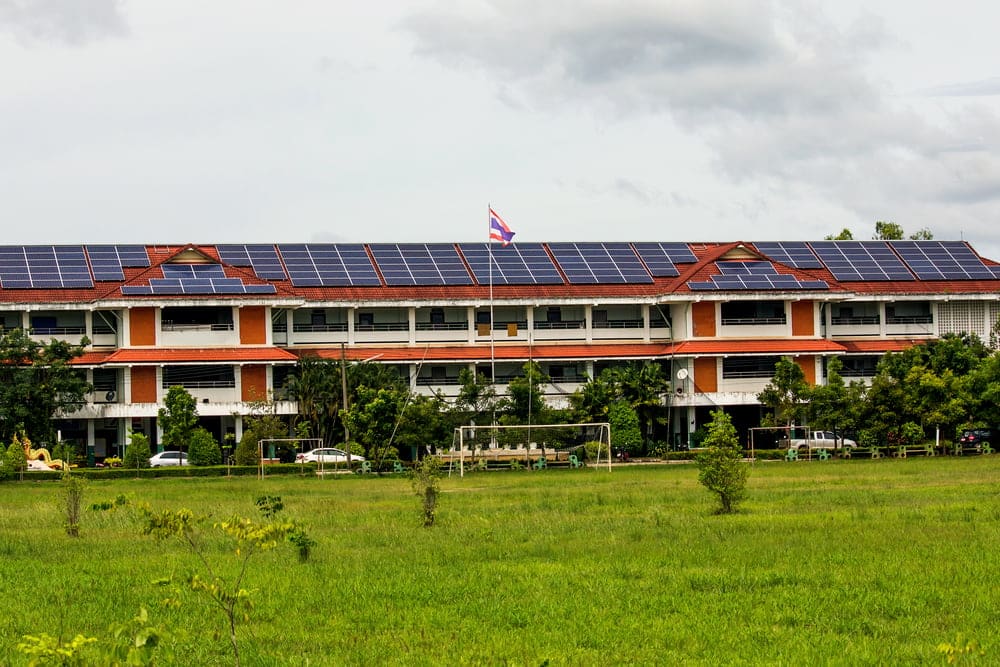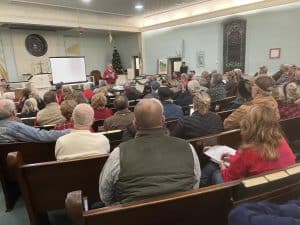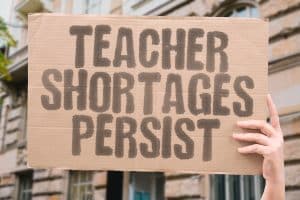Across Pennsylvania, millions of children are returning to classrooms for a new school year after summer break. Seeing old friends, making new ones, and the excitement of new challenges and experiences are always among the highlights of a return to school. There are, of course, also challenges to the start of a new school year.
Sadly, thousands of Pennsylvania children will face a challenge, one for which they bear no responsibility nor ability to change – trying to learn in dilapidated and poorly insulated buildings. Schools across the Commonwealth are struggling with failing buildings. The presence of asbestos and lead, poor weatherization, and deferred maintenance jeopardizes the health of students, teachers, and staff and are directly responsible for ballooning energy costs for districts and taxpayers.
To address this double-effect crisis, Rep. Elizabeth Fiedler introduced “Solar for Schools” legislation. This measure, House Bill 1032, would establish a program to issue grants to school districts, intermediate units, career and technical schools, and community colleges to fund solar energy projects to cover the costs of the purchase and installation of equipment, permit fees, energy storage, utility interconnection and other costs.
This legislation has the potential to be a “win-win-win” for Pennsylvania students, taxpayers, and workers.
On-site solar can reduce energy costs and save Pennsylvania school districts hundreds of thousands of dollars a year. Converting to solar will save school districts and taxpayers money while allowing districts to make other capital improvements to tackle the myriad infrastructure issues and invest in more teachers, support staff, and educational programming.
That’s a win.
The enactment of Solar for Schools will make our schools more energy efficient, help curb carbon emissions and catalyze the transition to clean energy, improving the quality of the air our children breathe.
Another win.
Installing and maintaining these solar projects will also create family-sustaining union jobs in communities across the Commonwealth, boosting our economy and demonstrating once again that investing in a 21st century clean energy economy is good for workers and Pennsylvania businesses.
A third win.
And if those three wins aren’t enough, President Biden’s Affordable Clean Energy Plan, also known as the Inflation Reduction Act, affords states – for a limited time – the opportunity to use federal funds for programs like Solar for Schools. By making a targeted state investment, we can secure these federal dollars for the benefit of schools and students across the Commonwealth.
It is important to note that these federal investments will be made. It is critical that the state government does all that it can to make sure Pennsylvania receives its fair share of these limited funds. Failure to act quickly will jeopardize our state’s ability to secure these federal funds.
Solar for Schools enjoys more than 30 co-sponsors in the state legislature, including Democrats and Republicans. It passed the state House with broad bi-partisan support. Those legislators recognize, as we do, that Solar for Schools is a triple win. It would help foster Pennsylvania’s transition to clean energy while also cutting carbon emissions. It would allow schools to invest more in actual education while saving taxpayers from footing ever-increasing energy costs, and it would prompt the creation of good paying, family sustaining jobs here in Pennsylvania.
A “perfect storm” of circumstances makes this the right time to advance and enact this important initiative. While the General Assembly passed and Governor Shapiro signed into law the state’s general appropriation budget for the 2023-24 fiscal year, the legislature must still pass the accompanying code bills. These pieces of legislation, which must be passed annually, provide the blueprint for how state funds are to be spent.
Often bills stall for one reason or another from advancing through the legislative process, and measures that enjoy significant support are sometimes enacted by being incorporated into these code bills. We are hopeful as legislative leaders and the administration negotiate the details of the 2023-24 code bills that they will recognize the value of Solar for Schools for Pennsylvania’s school children, taxpayers and working families.
No child should be expected to learn in a school that’s stiflingly hot in the school year’s early or final months or one that’s drafty and chilly in the winter. Taxpayers have the right not to be subject to inflation in school districts’ energy costs. Solar for Schools has the potential to be transformative for Pennsylvania. It is an investment our children, schools, taxpayers and Commonwealth deserve.






